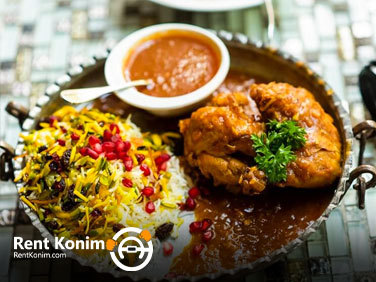Top Iranian food reflects a vibrant tapestry of culinary traditions, offering a rich array of flavors that vary from region to region. The Iranian table is not just colorful but culturally deep, featuring local dishes that make the most of regional ingredients. Whether it’s the crisp, golden tahdig—the cherished crust at the bottom of the rice pot—or a variety of other dishes, Iran promises a new taste experience with every meal. Known for its excellent cuisine, Iran invites you to explore its diverse food culture, which is as varied as its geography. So, pack your bags and prepare for a culinary adventure. The bottom of the pot awaits, revealing the soul of Iranian cuisine and the essence of its enduring food culture.
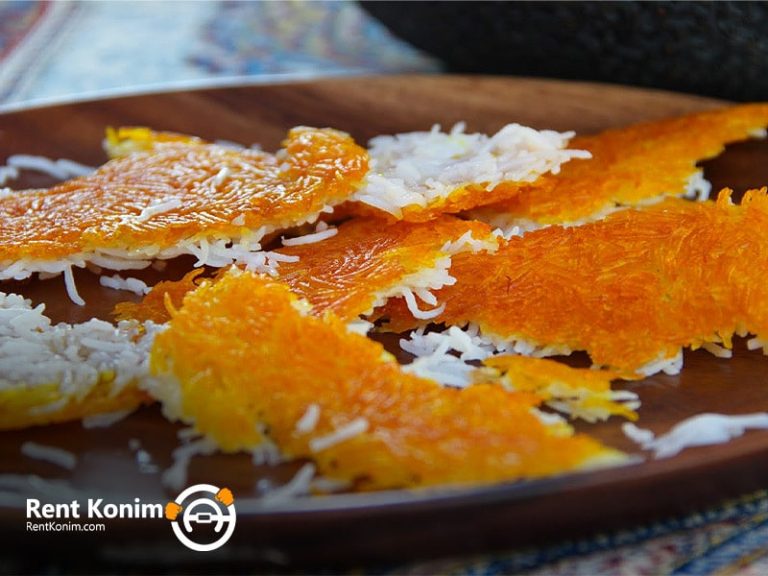
Ghorme sabzi
Qormeh Sabzi is the most popular Iranian stew among Iranian and international tourists and can be found in almost every restaurant menu. Vegetable broth stew is prepared with many fragrant vegetables, onions, Omani lemons, red beans (in some parts of Iran, pinto beans, and white beans), and minced meat of mutton, beef, or lamb. The secret of a delicious vegetable is like many Iranian dishes when it is cooked. The lower the heat and the longer the time you cook the stew, the more embedded and tastier it becomes. The vegetable broth is eaten with plain rice or saffron, and the experience of eating it will surely be interesting and attractive for foreigners as well.
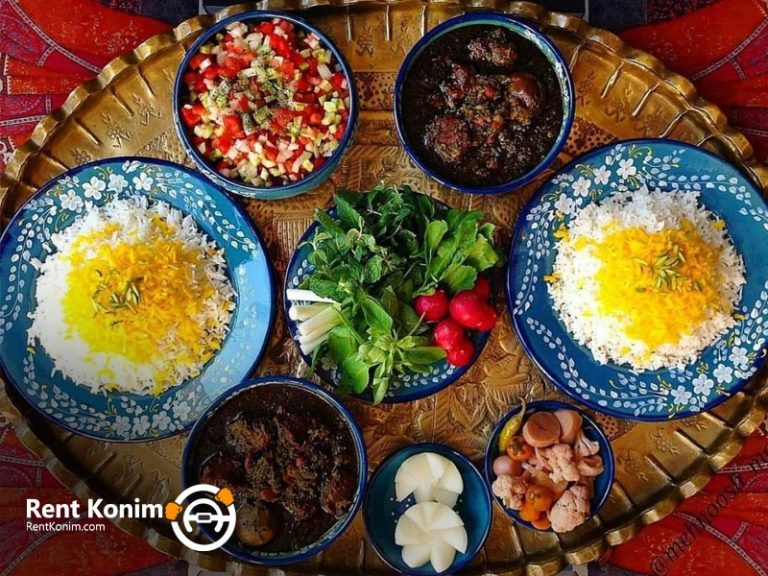
Fesenjan
Fosanjan stew is prepared from ground walnuts, pomegranate paste, and chicken or dumplings. This stew, like vegetable broth, must be cooked on low heat for hours to set. In different parts of Iran, this stew is made in different ways, and in some places, it is made sourer, while others add a smoothie and a little sugar to the food to make it completely sweet.
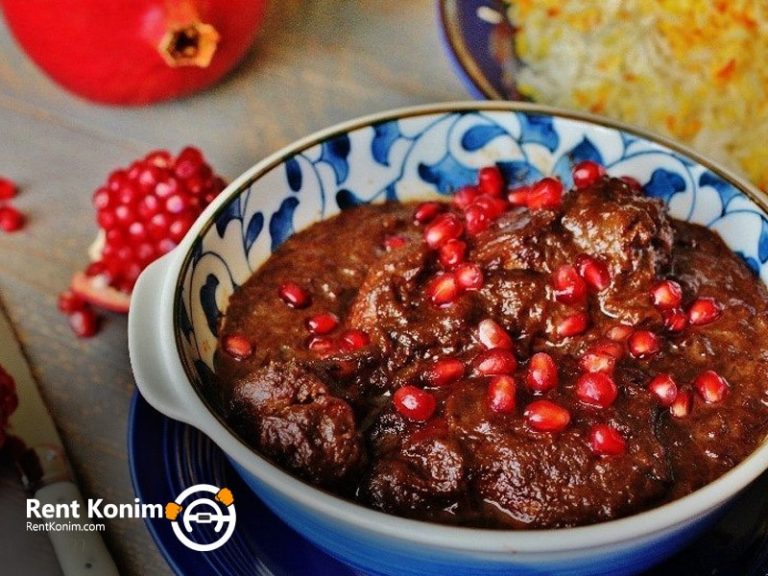
Gheymeh stew
Meat and chickpeas form the foundation of this rich stew, enhanced with tomato paste, onions, and a blend of spices. During cooking, potatoes are fried and then added to the stew, which is served in savory, small slices for enhanced flavor and presentation.
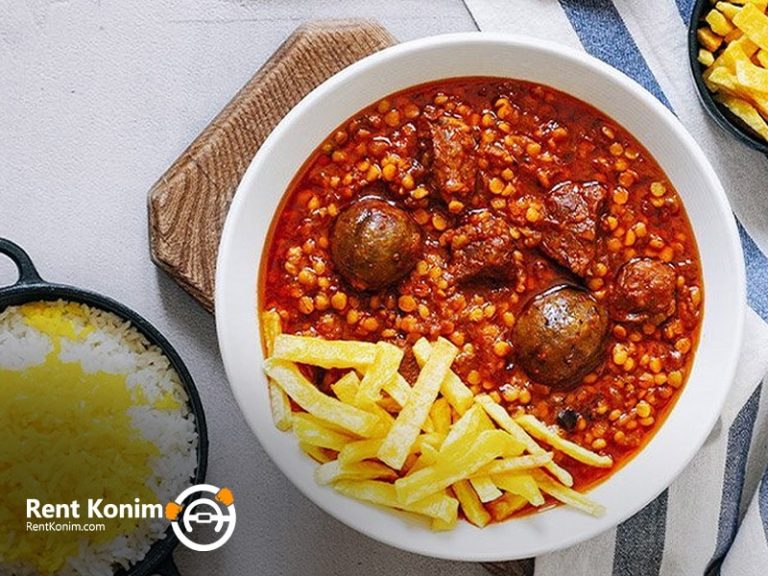
Zereshk polo
Iranians love sour flavors. Cranberries and barberry, which are red, are very sour. A traditional brass dish is filled with brass covered with barberry. This rice is cooked with butter, which helps to soften the barberry. Beh, rhubarb, green tomatoes, sour oranges, lemons, Omani lemons, cherries, tambourines, sumac, and pomegranates are the foods used in Iranian cuisine that give them a special and delicious taste.
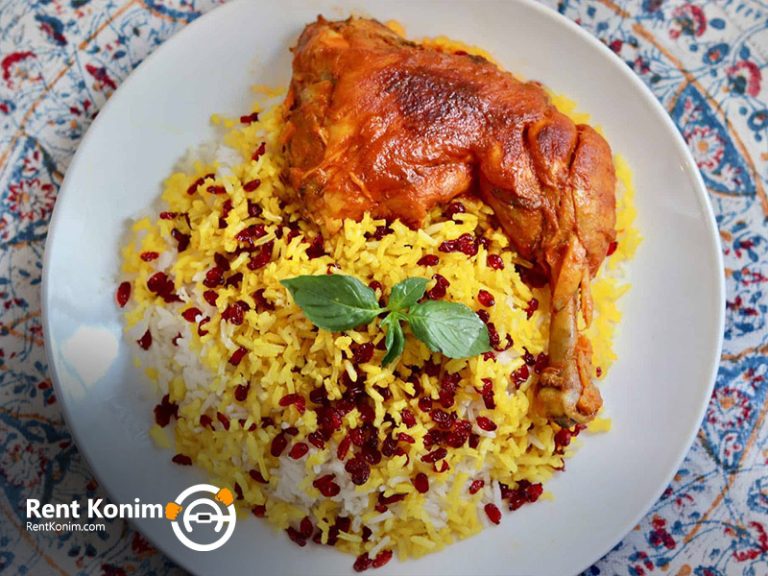
Albaloo polo
Sour cherries, with their vibrant and enticing appearance, are a staple in ceremonial dishes and often featured at formal gatherings. One of the most delightful Iranian dishes is sour cherry pilaf, which can be prepared with either red meat (meatballs) or chicken. Crafting this pilaf requires a deft touch, as it is a dish that not everyone can master, highlighting the culinary skill involved in its preparation.
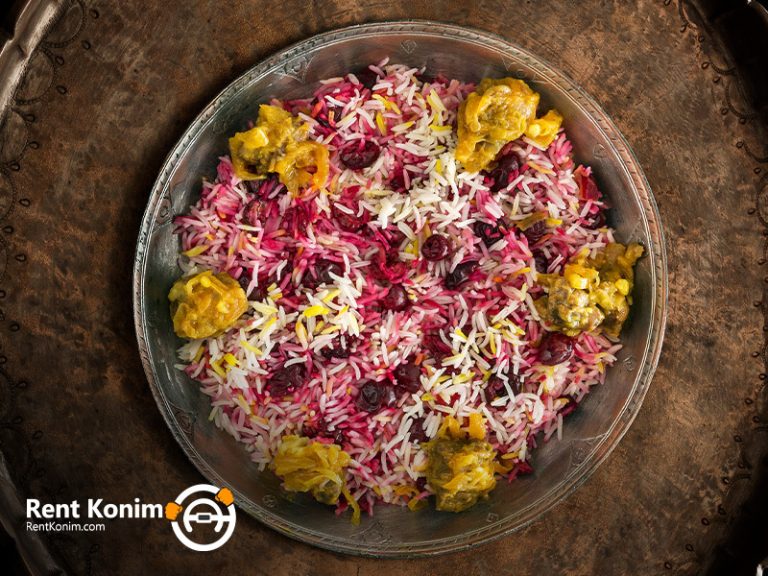
Baghali polo
In Iranian cuisine, rice can be cooked with butter and saffron, which is called Chelo, and it can also be cooked with other vegetables called pilaf. Rice can be eaten with plants, vegetables, beans, nuts, dried fruits, meat, and even cooked noodles and make up the bulk of the food. The best time to cook bean pilaf is spring when the bean is young, and the dill is fresh. This dish is full of dill and beans and is usually served with thin slices of lamb. It is even served with bony lamb. Rice should have a saffron flavor due to the saffron added to it just before serving.
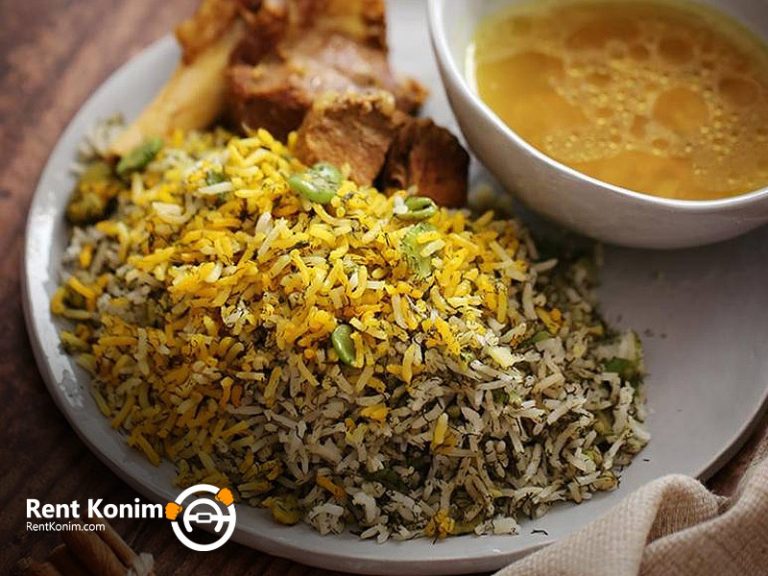
Lobia polo
Bean pilaf is one of the most delicious Iranian dishes that is served especially. Bean pilaf is usually eaten with the bottom of a pot of bread or potatoes, Shirazi salad, vegetables, and yogurt, which is a very tasty combination. To make pilaf beans, combine chopped green beans with meat, onions, tomato paste, and various spices and place over a gentle heat until cooked through and ready. This food is so popular in Iran. You can eat this food in each city of this country
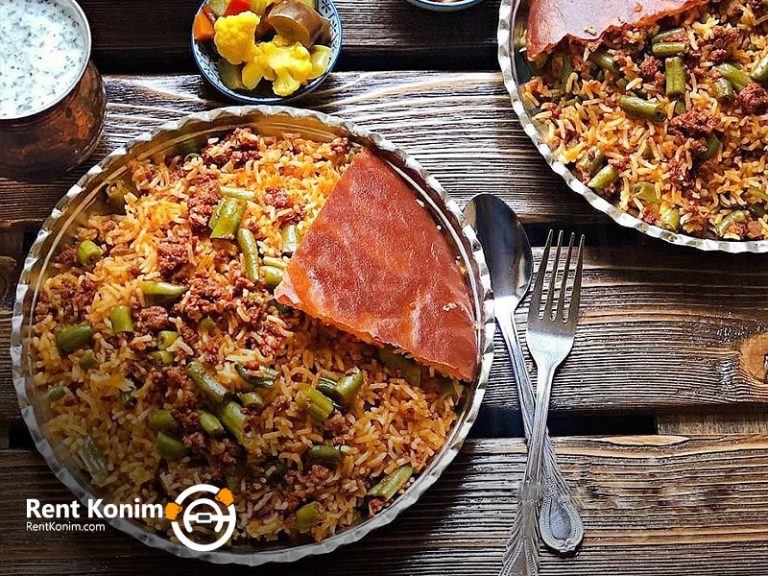
Chicken barbecue
Iranians love meat and in most Iranian dishes there is chicken or mutton and beef. One of the most delicious meat dishes is grilled chicken, which is grilled on charcoal and is very tasty. One of the traditions of the Iranians is that when they go to nature for camping, they must take the necessary ingredients for preparing grilled chicken and grill the chicken on charcoal and fire! Grilled chicken is eaten with grilled tomatoes, saffron rice, and butter, which is a very tasty combination.
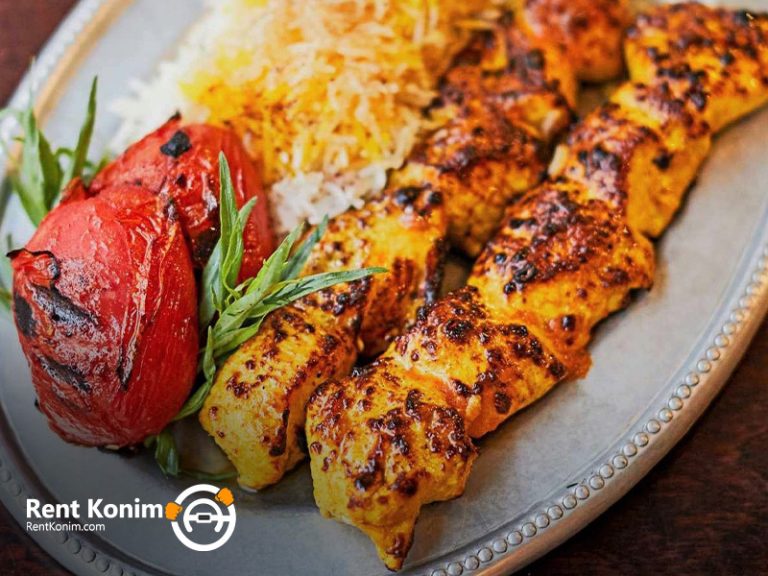
What is the most traditional food in Iran?
The broth is one of the most traditional foods in Iran. Broth can be cooked and served in pots of stone dishes. It is called Daisy. Whether it is broth or daisy, you should try these local dishes when traveling to Iran. This food has been cooked for many years and therefore its ingredients and instructions have changed in different parts of Iran. In different cities of Iran, they have their ingredients and recipes for cooking broth and daisies.
The diversity of our Iranian food is so great that it responds to different tastes and in addition to food diversity, some foods are prepared and cooked in different lines with different flavors and methods. For this reason, you can prepare a variety of Persian food for main meals or snacks and enjoy eating it.
Last Words
Iran’s rich food culture offers a delightful array of flavors and traditions, making it a culinary paradise for adventurous palates. Each region of Iran boasts its unique dishes, showcasing the country’s diverse culinary heritage. From the crispy golden layer at the bottom of the rice pot, known as “Tahdig,” to the savory delights of Ghorme Sabzi, Fesenjan, Zereshk Polo, Gheymeh Stew, Albaloo Polo, Baghali Polo, Lobia Polo, and Chicken Barbecue, Iranian cuisine is a captivating journey of taste and tradition. Don’t miss the opportunity to savor these delectable dishes on your trip to Iran and be sure to explore the local variations and ingredients that add a distinctive flair to each culinary masterpiece. Whether you’re a food enthusiast or simply seeking new culinary adventures, Iran’s vibrant food scene promises a feast for the senses. Bon appétit!

